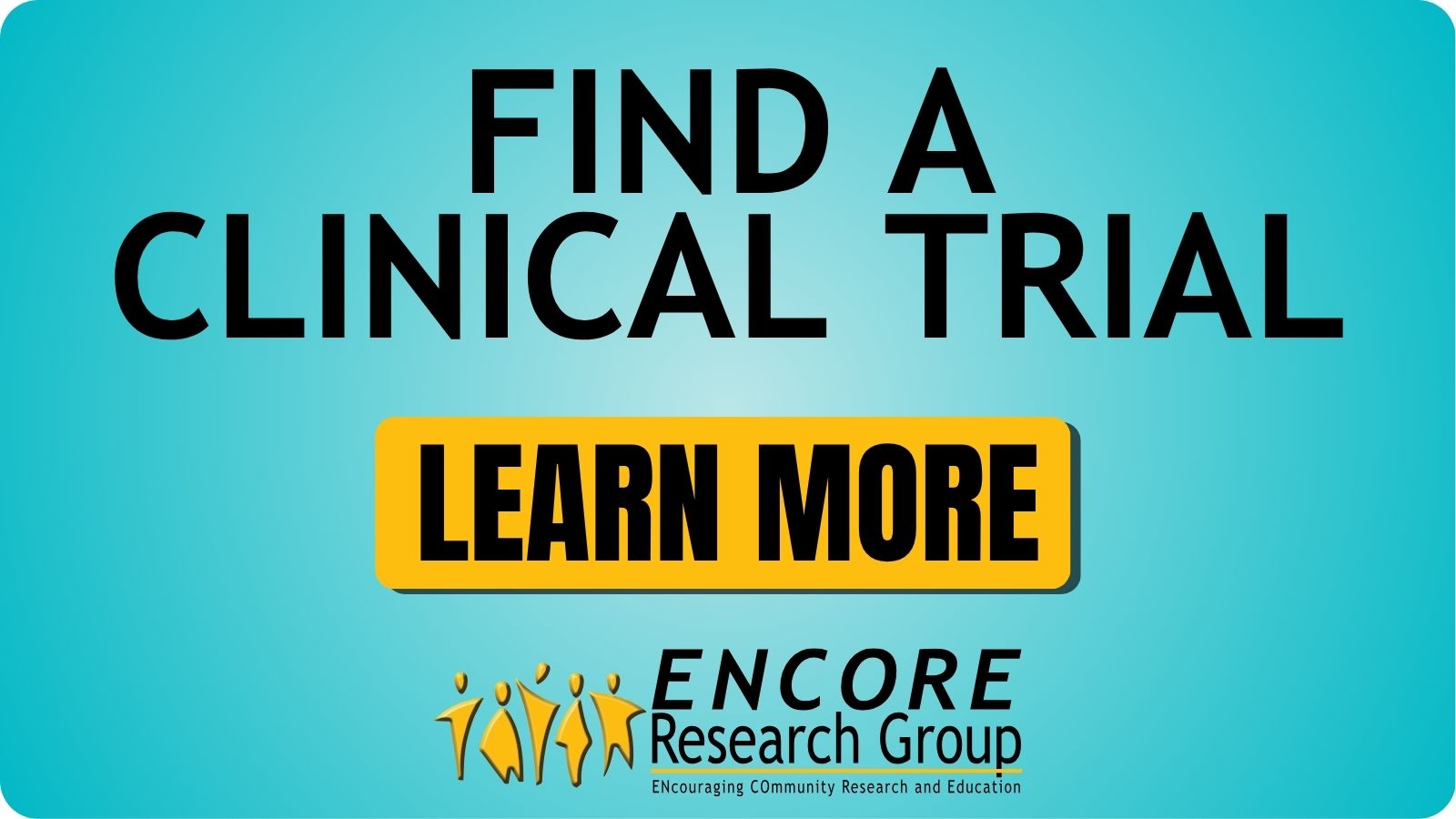Global Efforts in Cardiology: A Surge in Medical Progress

Audio
Unlock the secrets behind what truly works in healthcare. Join us on this week's MedEvidence Monday Minute Radio Show as Dr. Michael Koren, a leading cardiologist and research scientist, shares his insights from the European Society of Cardiology. Discover how international medical collaborations are revolutionizing cardiology right here in Northeast Florida. Dr. Koren dives into the intricacies of clinical trials, underscoring the critical role of double-blind studies in eliminating bias and objectively assessing treatment effectiveness.
Be a part of advancing science by participating in clinical research.
Music: Storyblocks - Corporate Inspired
Recording Date: September 9, 2024
Transcripts
Transcript generated by AI.
Announcer: 0:00
Welcome to the MedEvidence Monday Minute Radio Show hosted by Kevin Geddings of WSOS St. Augustine Radio. Each Monday morning, Dr. Michael Koren calls in to bring you the latest medical updates with insightful discussions. MedEvidence is where we help you navigate the real truth behind medical research, with both a clinical and research perspective. So sit back, relax and get ready to learn about the truth behind the data in medicine and healthcare. This is MedEvidence.
Kevin Geddings: 0:29
We have the king of hearts on the radio right now. Right, Dr. Michael Koren, cardiologist, get the tie in.
Dr. Michael Koren: 0:38
I'll take that. That's a nice thing to say about me, thank you.
Kevin Geddings: 0:42
Dr. Michael Koren, of course, medical doctor above and beyond everything else, but also expert cardiologist research scientist. He heads up the show at ENCORE Research Group where they do leading edge clinical research right here in Northeast Florida, including from a location here in St. Augustine near Flagler Hospital. And, of course, just got back from a little trip over the pond where you actually participated in an event dealing with cardiology and heart health issues in Europe, right.
Dr. Michael Koren: 1:10
Yes, in fact I gave two presentations at the European Society of Cardiology and did a lot of consulting work and discussion, and we mentioned last week when you spoke with me from Europe that one of the neat parts of my job is that we share information with doctors all over the world. So doctors in Europe and Asia learn about what we're doing here in Jacksonville and I learn about what people are doing in Europe and Asia and bring it back here. So it's a neat experience.
Kevin Geddings: 1:40
Yeah, a lot of that, of course, and the work that you do here locally, even in St. Augustine, has to do with trying to figure out just what works right.
Dr. Michael Koren: 1:49
Yeah. So what I like to ask people sometimes is like how do you know if something's working in health care? You know it seems like maybe a basic question and people look at me like, well, why wouldn't you know that? But when you really think about it, how do you know if something's working? And what we like to say in healthcare is that anything that we do has two implications it will either affect your prognosis or it'll make you feel better or maybe feel worse. So the way you feel and your prognosis are broadly the two things that we're trying to affect when we do anything in healthcare. So let's break that down a little bit. So, prognosis what does that mean?
Dr. Michael Koren: 2:30
Well, there's some clear elements of prognosis. Are you dead or alive? So if we do something, are you more likely to survive or not? Prognosis would be are you going to have a heart attack or not? We can make predictions about that now, based on clinical trial results. So if you do this intervention or take this medication or not, are you more or less likely to have a heart attack or more or less likely to have a stroke? So these are things we call prognosis. And then feeling better is a lot trickier than you would think because of this.
Dr. Michael Koren: 3:02
If you go into a situation and some doctor or anybody prescribes something and you're having certain types of pain or maybe a problem with your bowels whatever the case may be just the power of suggestion can sometimes make you feel better.
Dr. Michael Koren: 3:18
Or if you take a drug and your neighbor says, oh, that drug's horrible, I had the worst problem with that that power of suggestion may make you feel worse. So how do we cut through that? How do we know what is really working and what's not working? And this is where we get into the concept of doing double-blind studies, so that people don't know what they're taking and therefore we can really assess whether or not we're helping them feel better or perhaps feel worse, and so these are some of the core elements that go into doing clinical research so that we can assess things, and one of the neat things about what we do is once we find that somebody is getting better or a group of people are getting better, then we turn that around and say, okay, well, this becomes the new standard and this is what we will recommend for our patients moving forward, because we've proven in a scientific setting that either this intervention makes you feel better or it improves your prognosis.
Kevin Geddings: 4:10
And indeed that's never-ending right, doctor. I mean that goes back hundreds of years in medicine, where you figure out what works, you may change, and then, as you see that it works, then you utilize it, moving forward.
Dr. Michael Koren: 4:21
Right. So the problem in the old days quote-unquote is that it was just based on the experience of one doctor or two doctors, and sometimes that's effective. Sometimes the experience is so compelling that we know that it works, but in the modern age it's more likely to be a subtle effect or something that's more difficult to measure. So, for example, if I gave you a drug for your cholesterol or for your lipoprotein, little a problem will you have fewer heart attacks five years down the road?
Dr. Michael Koren: 4:49
well, the only way we're going to know that is by doing these large clinical trials where we share information with people from all over the world and, most importantly, we're doing the same thing for everybody, gets omni studies throughout the world. That's a key element is that it has to be reproducible. That's to be something that is done very consistently so that, the end of of the day, we know whether or not that works and then whether or not to apply that in the future.
Kevin Geddings: 5:14
So, from your perspective because we're basically in the same wheelhouse both baby boomers are we making progress in terms of, you know, medical information, how we treat people, almost exponentially because of the internet, the connectivity, the ease of you being able to go and talk to thousands of doctors in Europe, which would not have been the case 50 years ago.
Dr. Michael Koren: 5:34
Yes and no. It's the old story of three steps forward, two steps back. That's the way humans make progress, for good and for bad. So there are some wonderful things about information technology, and clinical trial results are broadcast very widely these days, but there's also a lot of noise out there, and there are sometimes trials that aren't perfectly designed, that we have to deal with that, or the trials may not apply to every single patient who gets involved in them, and so how do we take that information from a clinical trial and extend it to people that may not fit in perfectly to what we studied?
Dr. Michael Koren: 6:14
So there are a lot of elements to this.
Dr. Michael Koren: 6:16
But the biggest negative element is information that gets out, that isn't based on evidence, isn't based on facts and that really changes people's behavior. So an example of that right now is all the bad talking about statins. Well, statins have been tested extensively in clinical trials and they're really wonder drugs.
Dr. Michael Koren: 6:35
They do incredible things and there's never been a statin trial that showed that prognosis doesn't get better. There is a slight effect in some people it's one in a hundred of getting muscle aches, but that's all you hear about when people talk about statins. So we try to address that issue of misinformation with our MedEvidence platform and really get to the facts what we know about something, what we don't know about something and how we learn about the stuff that we don't know. But to answer your question very directly, we are making progress and information technology on average is helping us tremendously.
Kevin Geddings: 7:08
Speaking of that MedEvidence platform, it's available to all of us, doesn't cost anything either, and it's reliable and trustworthy, which is something that well two words not normally associated with the internet. Go to medevidence.com. That's medevidence.com. And doctor, I know you're busy, but before we let you go, before we you know, we're heading into flu season and all that kind of stuff. I guess there's some trials that folks can participate if they're you know, if they'd like to perhaps get the latest and greatest when it comes to a flu shot, right?
Dr. Michael Koren: 7:36
Absolutely. You're reading my mind, kevin. It is now time to prepare for the cold and flu season and we have multiple different projects at multiple different sites to help people. So give us a call, we can sort through it, and there are many, many benefits for people that participate in these trials. One you'll get the latest and greatest in many circumstances. Two is that if you do get sick during the cold and flu season, you may have a process and a structure to find out if you're infected with flu or RSV or COVID or something else, and that's not generally available to the public.
Dr. Michael Koren: 8:09
And finally, we do compensate patients for collecting their data and for filling out diaries and surveys. So there's some financial benefits for people as well. So give us a call and we'll be more than happy to see what you fit into.
Kevin Geddings: 8:21
Yeah, absolutely. A lot of our listeners have done this. We encourage you to do it as well, Dr. Michael Koren. He always joins us on Mondays and we appreciate you. Be safe out there, okay, doctor. Thank you.
Dr. Michael Koren: 8:32
You too, Kevin.
Announcer: 8:33
Thanks for joining the MedEvidence podcast. To learn more, head over to MedEvidence.com or subscribe to our podcast on your favorite podcast platform.



